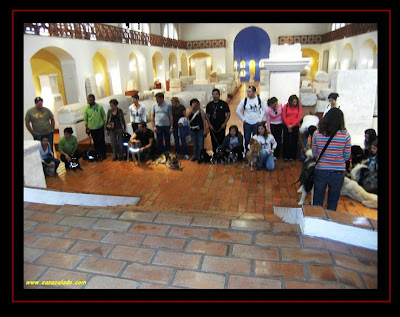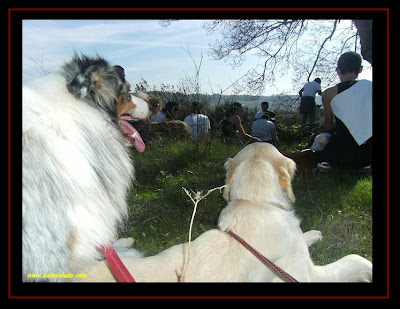
The Portuguese crisis remains the national spotlight and no one speaks of the consequences that arise from this crisis.
I think many have yet to feel the cuts in their budgets or job losses.
Just go to large supermarkets or shopping centers to continue to see people buying non essential products in force.
But the reality is out there and in a few months will hit all of us.
The reality behind the reality lies in the ability to feed our children, both the 2 leg and 4 legged ones.
How to cope with the crisis that no one talks about ?
Look, maybe because I am a mother and my major concern continues to be, feeding in a reasonable way, I have been reading a lot about the vegetable garden that has make me thinking that lot of us, with little effort, could probably complement their food budget.
I read on a website that a person devoting his time of one hour per day, could produce enough for a family of 10 people (something to think about).
Another way is to eliminate the "luxury" of our menu and return to the basics of our grandparents, a bowl of soup (made with the vegetables from our garden) and a piece of meat feeds and it is more healthy.
For the canines, like it or not, back to what our grandparents gave. Rice with shredded chicken (yes, no bones and no spice) mixed with dry food. If you can not afford the expensive dry food, look for the cheapest!
Do not forget that the crisis is hitting everyone doorstep and deliver one more animal to the overpopulated shelters and associations does not help anyone.
Every day there are fewer donations, more needy, so save and try to prevent in advance the more difficult times that will come.
The international financial crisis has directly affected the lives of pets. Aiming to reduce spending, families of first world countries like England and America have abandoned their pets on the streets.
According to British newspaper The Times, animal protection societies recorded an increase in the number of dogs and cats. The increase may be due to the increase of the annual budget for creating a pet, which is 24% higher.
In the U.S. the situation is repeated. According to the BBC Brazil, only in New York, about 44 000 dogs and cats are abandoned each year. The number is increasing because many families say they have less money because of the crisis and end up choosing to leave the animals in shelters or in the streets.
The stories most commonly alleged by the owners when they leave their pets at shelters is that they lost their jobs and can not afford to feed and vet bills. The NGO Dog Trust, however, advises owners to seek cheaper diets but to not abandon their pets.
Source: http://petmag.uol.com.br/noticias/crise-economica-contribui-para-o-abandono-de-animais-domesticos/


















